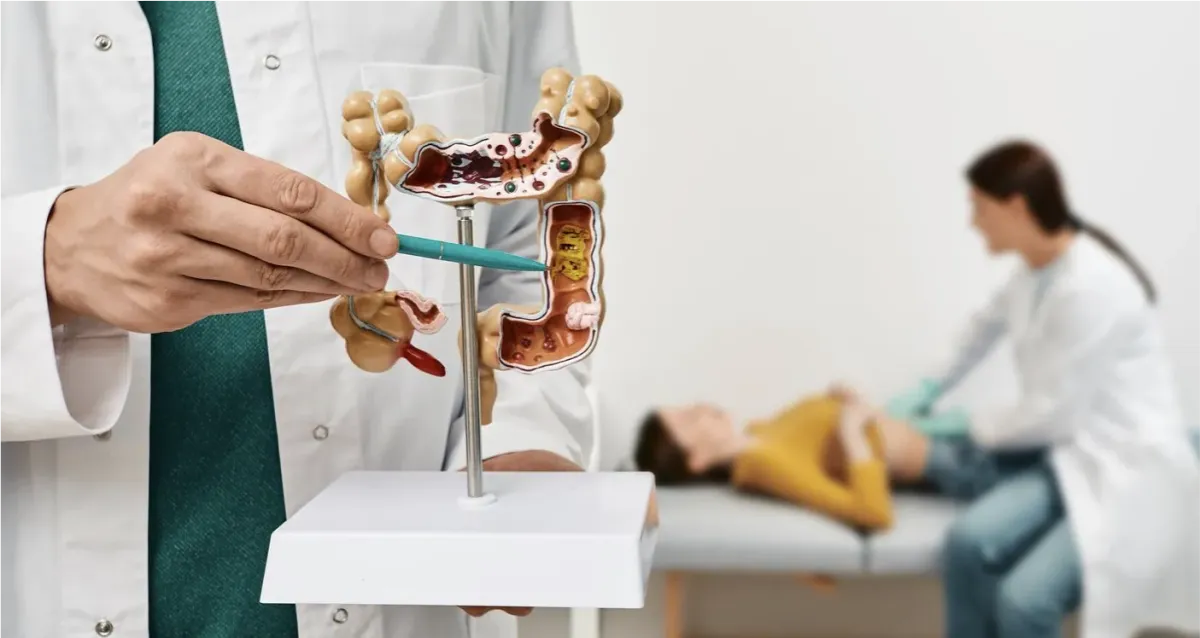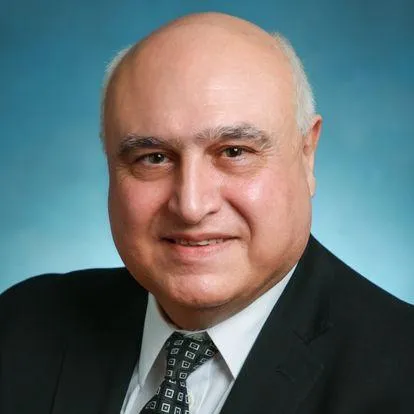
Gastrointestinal (GI)
The Basics of Gastrointestinal (GI) Health
The gastrointestinal (GI) tract is a long, multifaceted tube whose ultimate purpose is to break down ingested food particles into usable nutrients and absorb them into the body. The GI tract is made up of the mouth, esophagus, stomach, small intestine and large intestine, each of which may be affected by conditions such as constipation, irritable bowel syndrome, hemorrhoids, gastroesophageal reflux disease (GERD), colitis, colon polyps and others. Prevention or relief from these conditions can often be achieved by maintaining a healthy lifestyle and good bowel habits.


Gastrointestinal (GI)
The Basics of Gastrointestinal (GI) Health
The gastrointestinal (GI) tract is a long, multifaceted tube whose ultimate purpose is to break down ingested food particles into usable nutrients and absorb them into the body. The GI tract is made up of the mouth, esophagus, stomach, small intestine and large intestine, each of which may be affected by conditions such as constipation, irritable bowel syndrome, hemorrhoids, gastroesophageal reflux disease (GERD), colitis, colon polyps and others. Prevention or relief from these conditions can often be achieved by maintaining a healthy lifestyle and good bowel habits.
The Different Symptoms of (GI)
Symptoms of gastrointestinal problems can include bloating, constipation, diarrhea, changing bowels consistency, vomiting, abdominal pain, belching or GI bleeding. Some common GI disorders include acid reflux, constipation, peptic ulcers, lactose intolerance, gallstones, diverticulitis and inflammatory bowel disease.

Treatment for Gastrointestinal (GI) Conditions
Many patient suffer from irritable bowel syndrome. Frequently patients experience bloating, gassiness, diarrhea, constipation and abdominal pains. The condition is frequently mistaken for gluten sensitivity and is usually caused by abnormal bacterial overgrowth in the small intestine. This can frequently be controlled with dietary modifications and sometime antibiotics. Associated conditions can include rosacea, fibromyalgia, refractory acne, post-menonpausal hot flashes, hives, fatigue and many other nonspecific symptoms.

The Different Symptoms of (GI)
Symptoms of gastrointestinal problems can include bloating, constipation, diarrhea, changing bowels consistency, vomiting, abdominal pain, belching or GI bleeding. Some common GI disorders include acid reflux, constipation, peptic ulcers, lactose intolerance, gallstones, diverticulitis and inflammatory bowel disease.


Treatment for Gastrointestinal (GI) Conditions
Many patient suffer from irritable bowel syndrome. Frequently patients experience bloating, gassiness, diarrhea, constipation and abdominal pains. The condition is frequently mistaken for gluten sensitivity and is usually caused by abnormal bacterial overgrowth in the small intestine. This can frequently be controlled with dietary modifications and sometime antibiotics. Associated conditions can include rosacea, fibromyalgia, refractory acne, post-menonpausal hot flashes, hives, fatigue and many other nonspecific symptoms.
Treatment and Prevention

Early Medical Treatment and Supplementation

Specific Diet and Exercise Recommendations

Aggressive Screening, Alternative Therapies, and More
Treatment and Prevention

Early Medical Treatment and Supplementation

Specific Diet and Exercise Recommendations

Aggressive Screening, Alternative Therapies, and More
William Josephson, M.D
Board Certified Family & Internal Medicine Physician
William Josephson, M.D. is an internist and primary care physician in Northridge (Granada Hills), CA. His specialties include care and treatments for vitamin deficiency, obesity and weight management, women's health, sleep disorders, asthma, cholesterol health, diabetes, and depression and anxiety, among other patient concerns and ailments. Dr. Josephson has been a practicing physician for more than 33 years who puts his patients first. Patients are always seen as quickly as possible, and their concerns are fully addressed. He believes medical care should include preventative care and effective treatments, personalized to each patient's lifestyle and health needs. Dr. Josephson believes that establishing a bond with the patient will allow not only for patient comfort but also the most efficient medical care possible. He is pleased to be welcoming new patients, so call our office or book online today!


William Josephson, M.D
Board Certified Family & Internal Medicine Physician
William Josephson, M.D. is an internist and primary care physician in Northridge (Granada Hills), CA. His specialties include care and treatments for vitamin deficiency, obesity and weight management, women's health, sleep disorders, asthma, cholesterol health, diabetes, and depression and anxiety, among other patient concerns and ailments. Dr. Josephson has been a practicing physician for more than 33 years who puts his patients first. Patients are always seen as quickly as possible, and their concerns are fully addressed. He believes medical care should include preventative care and effective treatments, personalized to each patient's lifestyle and health needs. Dr. Josephson believes that establishing a bond with the patient will allow not only for patient comfort but also the most efficient medical care possible. He is pleased to be welcoming new patients, so call our office or book online today!

Common Questions
Do you accept health insurance?
We accept most major PPO insurance plans, Medicare and MediCal. If you have any questions regarding your insurance plans and coverage, please call our office. We are happy to help you.
Why a doctor of internal medicine?
Board-certified in the field of internal medicine, Dr. Josephson specializes in caring for adults. In contrast to general practitioners and physicians in family practice — both of whom treat patients of all ages — an internist focuses specifically on adult health issues. As the physician responsible for overseeing his patients’ total care, he acts as the “quarterback,” collaborating with — and making referrals to — a wide network of specialists to address your broader health issues.
Does Dr. Josephson See “Walk-In” Patients?
Although “walk-in” visits are not encouraged, and though we can't guarantee same-day service with Dr. Josephson in urgent situations, if you can call the office as soon as possible to see if we can get you seen by the Doctor we will let you know
What if I’m Running Late or Need to Cancel My Appointment?
We respectfully request that all patients arrive 15 minutes early for their appointments. If you need to reschedule your appointment for any reason, please call the office at least 24 hours in advance.


Common Questions
Do you accept health insurance?
We accept most major PPO insurance plans, Medicare and MediCal. If you have any questions regarding your insurance plans and coverage, please call our office. We are happy to help you.
Why a doctor of internal medicine?
Board-certified in the field of internal medicine, Dr. Josephson specializes in caring for adults. In contrast to general practitioners and physicians in family practice — both of whom treat patients of all ages — an internist focuses specifically on adult health issues. As the physician responsible for overseeing his patients’ total care, he acts as the “quarterback,” collaborating with — and making referrals to — a wide network of specialists to address your broader health issues.
Does Dr. Josephson See “Walk-In” Patients?
Although “walk-in” visits are not encouraged, and though we can't guarantee same-day service with Dr. Josephson in urgent situations, if you can call the office as soon as possible to see if we can get you seen by the Doctor we will let you know
What if I’m Running Late or Need to Cancel My Appointment?
We respectfully request that all patients arrive 15 minutes early for their appointments. If you need to reschedule your appointment for any reason, please call the office at least 24 hours in advance.

Schedule An Appointment Today
To make an appointment, call Dr. Josephson's office at (818) 360-4600 or click the button below to get in touch with us.

Schedule An Appointment Today
To make an appointment, call Dr. Josephson's office at (818) 360-4600 or click the button below to get in touch with us.

Services
Primary Care
Internal Medicine
Senior Care
Suboxone Therapy & more...
Office Hours
M-F - 9am-6pm
Saturday - Closed
Sunday - Closed
© 2024 Internal Medicine Northridgeine

Office Hours
M-F - 9am-6pm
Saturday - Closed
Sunday - Closed
Services
Primary Care
Internal Medicine
Senior Care
Suboxone Therapy & more...
© 2024 Internal Medicine Northridge